Assessing the Macroeconomic Consequences of the Inflation Reduction Act of 2022
Thanks to a subscriber for this report from Moody’s. Here is a section:
Lawmakers appear close to passing into law the Inflation Reduction Act of 2022. The legislation is born out of the Build Back Better agenda that President Biden proposed more than a year ago. It raises nearly $750 billion over the next decade through higher taxes on large corporations and wealthy individuals and lower Medicare prescription drug costs, to pay for nearly $450 billion in tax breaks and additional government spending to address climate change and pay for lower health insurance premiums for Americans benefiting from the Affordable Care Act (see Table 1). The remaining more than $300 billion goes to reducing the federal government’s future budget deficits (see Chart 1). Broadly, the legislation will nudge the economy and inflation in the right direction, while meaningfully addressing climate change and reducing the government’s budget deficits.
The renewable energy sector rebounded emphatically on the prospect of additional subsidies last week. Removing the limitation on EV rebates so every buyer gets a $7500 discount and reinstating the 30% tax credit for solar installations are both stimulative for their respective sectors.
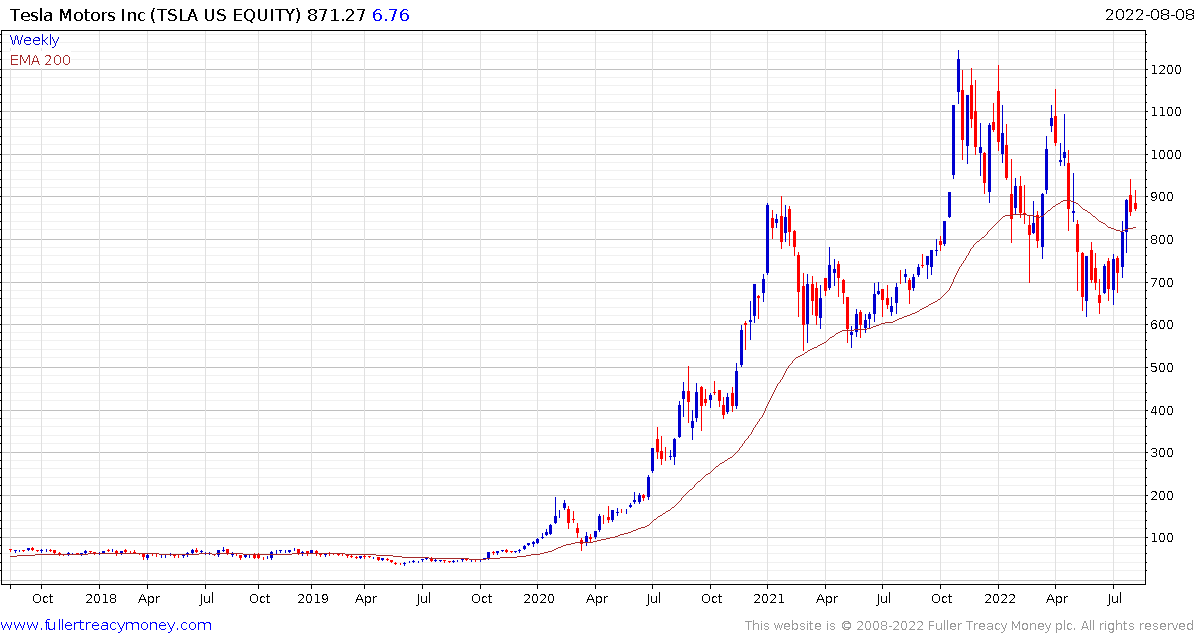 Tesla unwound most of Friday’s decline at the open and declined again by the close. It’s an exceptionally volatile share, so a break in the medium-term sequence of lower rally highs will be required to improve the trend’s consistency.
Tesla unwound most of Friday’s decline at the open and declined again by the close. It’s an exceptionally volatile share, so a break in the medium-term sequence of lower rally highs will be required to improve the trend’s consistency.
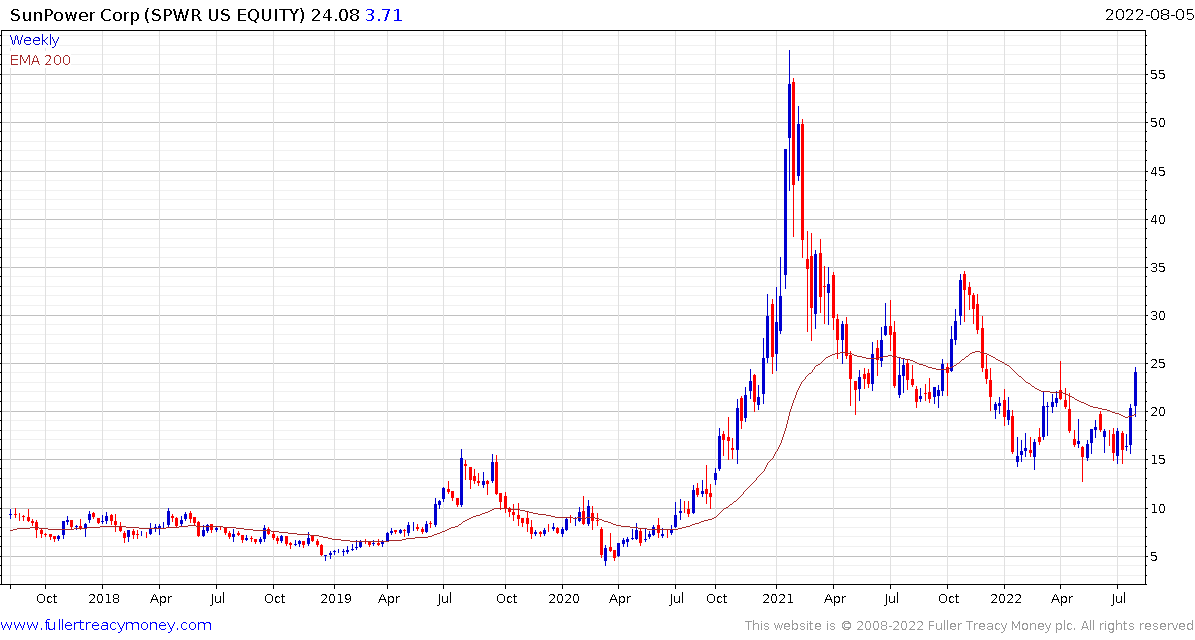 Solar stocks did not follow through on the upside today. SunPower for example is pausing in the region of the April highs.
Solar stocks did not follow through on the upside today. SunPower for example is pausing in the region of the April highs.
Interest rates are an obstacle for many solar business models. Companies often have to carry the cost of installation until the principle is incrementally paid back, before they start generating a return. The higher rates are, the longer the time required.
The reliance of renewables on high oil prices has been reduced over the last decade but it was replaced by a reliance on cheap finance. Today oil prices are high but so are interest rates. Renewables are in search of a clear narrative to spur interest. Unfortunately, the prospect of an unfolding recession is not great news for a capital-heavy sector.
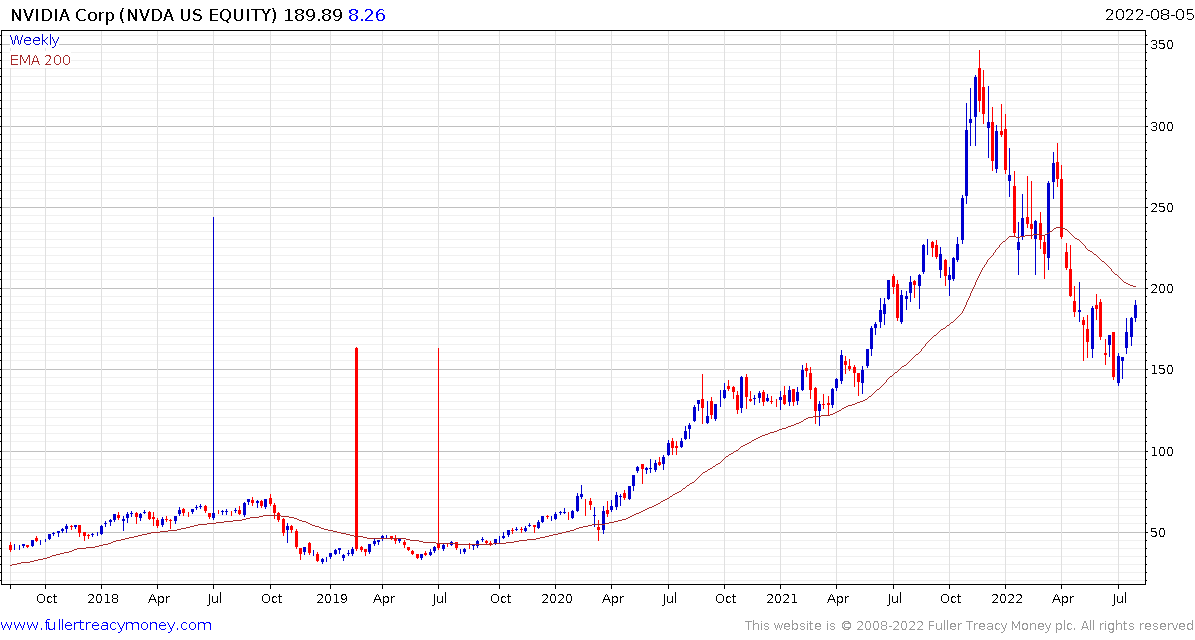 NVidia’s negative guidance today sapped enthusiasm for speculative investments.
NVidia’s negative guidance today sapped enthusiasm for speculative investments.
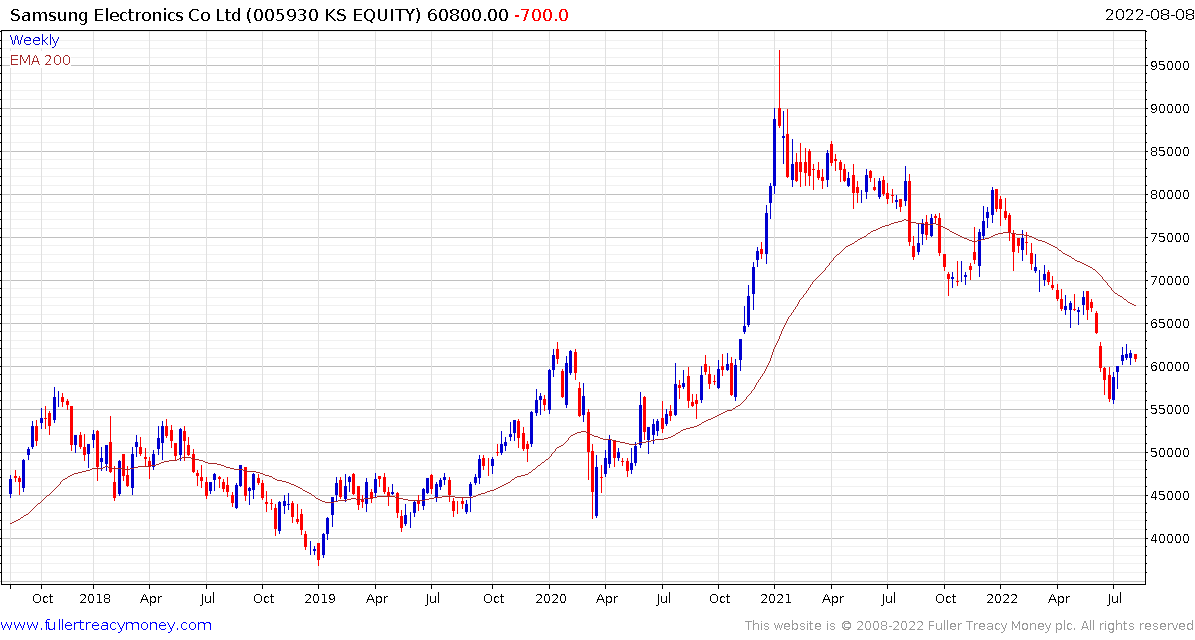 Samsung Electronics remains in a medium-term downtrend amid a glut of memory chips. This article from the South China Morning Post carries details on the company’s efforts to migrate production outside China; primarily towards Vietnam.
Samsung Electronics remains in a medium-term downtrend amid a glut of memory chips. This article from the South China Morning Post carries details on the company’s efforts to migrate production outside China; primarily towards Vietnam.
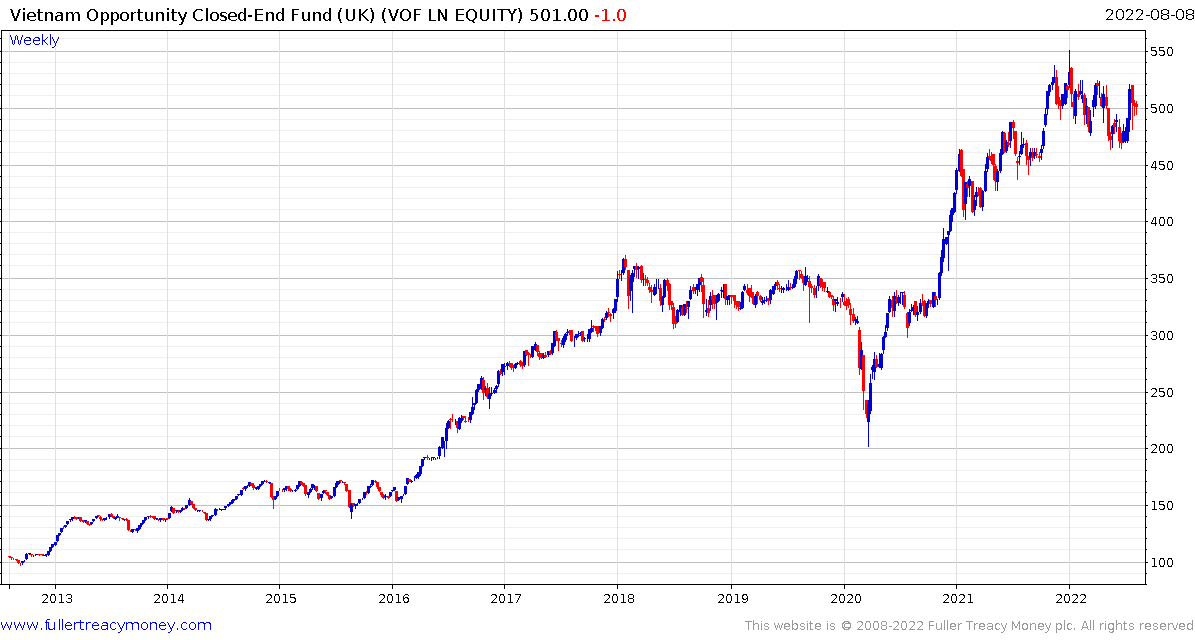
The Vietnam Opportunities Trust is firming from the region of the trend mean and the previous all-time peaks.


